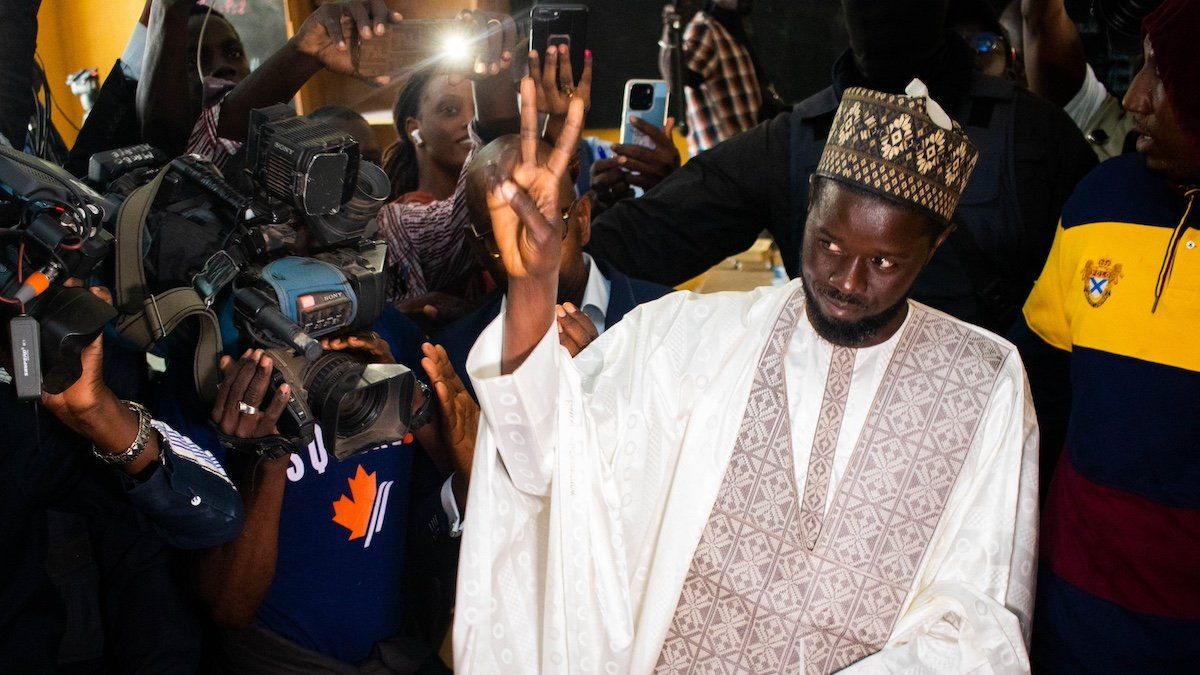Preliminary results on Monday showed opposition candidate Bassirou Diomaye Faye winning Senegal’s presidential election outright with 53% of the vote. Incumbent party candidate and former Prime Minister Amadou Baconceded to Faye ahead of official results, meaning the country will avoid a runoff vote.
Faye is a close ally of the popular opposition figure Ousmane Sonko, who was barred from standing because of a defamation conviction, but is expected to play a major role in Faye’s administration. Outgoing President Macky Sall delayed elections from their intended February date, in part to buy time to improve his party’s standing against Sonko, but was checked by the country’s Constitutional Council.
Tochi Eni-Kalu, a Eurasia Group analyst, says the delay backfired. “Strong turnout from Sonko's base, anti-establishment sentiment among voters in part driven by the election delay, and the eleventh-hour endorsement from the fellow opposition Senegalese Democratic Party” were what pushed Faye to victory.
Now, Sall will be expected to hand over power when his mandate ends on April 2. If all goes peacefully, it will underline Senegal’s reputation as the most stable democracy in West Africa, and run counter to the trend of military control and weakening democratic institutions from Mali to Niger.
However, Faye’s victory portends changes for Senegal, who like Sonko champions a more nationalist path. We’re watching how Faye approaches foreign relations, particularly with former colonial overlord France, which Sonko has criticized heavily.
